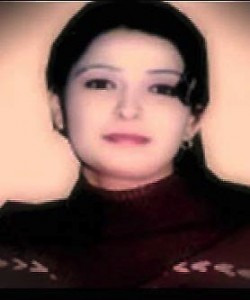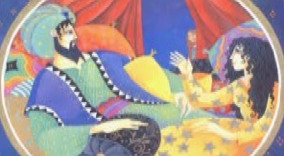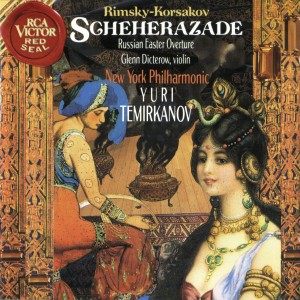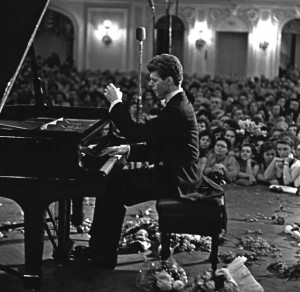“Lorsque rien n’existait, l’amour existait ;
et lorsqu’il ne restera plus rien, l’amour restera ;
il est le premier et le dernier.”
“When nothing existed, love existed;
and when nothing shall remain, love shall remain;
it is the first and the last.”
– Princess Shéhérazade, One Thousand and One Nights.
Genesis
Early 1990’s I was living in Paris studying ‘Langue et Civilisation Françaises’ at Sorbonne University. While browsing books in a bookshop on the left bank, I bought “Schéhérazade ou l’éducation d’un roi” (“Sheherazade or the education of a King”) a book by Marie Lahy-Hollebecque** see reference at bottom. From this book, I saved the above quote about “love”, which on screen starts and sets the central theme of the movie Beyond Paradise.
A dual U.K. and U.S. citizen but of mixed Middle Eastern descent, I’ve spent most of my life in exile – away from motherland and family – studying, living, and working in London, San Francisco, Rio, Los Angeles, New York and Paris.
I’m drawn to the stories of displaced people, the plight of the lonely, voiceless and marginalized minorities of the world, especially women, children, and gays and lesbians.
The human being’s most powerful and mysterious feeling of “falling in love” intrigues me. I’m attracted to cross-cultural love stories involving clash and conflict, aiming for a greater understanding and appreciation of diverse cultures.
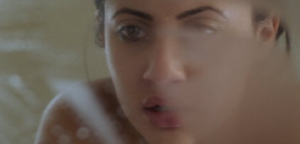 Shahrzad (Francia Raisa) Tehran flashback
Shahrzad (Francia Raisa) Tehran flashback
Beyond Paradise may be the first movie about the lives of certain Iranian immigrants uprooted from their homeland and displaced to California. In particular, the film is about the tragic consequences of the violent abuse of a young classical music student ‘Shahrzad’ who flees Iran to marry an Iranian in Los Angeles, but then Qismet (Destiny) leads her to fall in love with Sebastian, a Spanish-American gardener.
Perhaps as a therapy against her past tragedy, Shahrzad becomes an avid reader of Rumi, the 13th C. Persian poet. Rumi’s ecstatic poetry is naturally used in the film, a bit similar to the use of Neruda’s poems in the Italian movie Il Postino. Set in Los Angeles, Beyond Paradise is mostly in the English language. (Hopefully this may help to introduce Rumi’s sublime love poems and the tragic repercussions of ‘‘Violence Against Women’, to a wider international audience.)
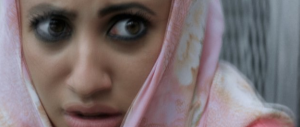 Visuals
Visuals
To arrive at an outline of a story, I need to imagine striking visuals. Or, to be struck by images that are so astonishing and haunting they shadow me during the day and follow me to bed at night. The images begin to generate, or associate with, themes or ideas that I care passionately about. It helps if some images/themes evoke music and/or dance that could become organic elements of the story.
Music and poetry quickly developed into integral parts of this storytelling. Being a world music collector (a patron of World Music Institute in NYC) I gravitate to plots where music and dance are natural elements of the story. My first feature David & Layla, a political romantic comedy, is elevated by its mélange of the music and dance traditions of Jewish David and Muslim Layla, mixed with the jazz sounds of Manhattan where the unlikely lovers first meet by a stroke of Destiny.
Violence Against Women
Beyond Paradise’s central character ‘Shahrzad’ and her tragic story evolved from several sources. A few years ago, I saw a mobile phone video on YouTube of a delicate 17-year old girl, Du’a Khalil Aswad, being kicked and stoned to death by men in Iraq. Some of the murderers were from her own family. This was a diabolical instance of the so-called “Honor Killing.” What was Du’a’s crime that her family so badly wanted their “Honor” saved from, driving them to crush her to death so abominably? Du’a and a 19-year old boy from a faith different than hers had fallen in love!
The stoning of Du’a Khalil Aswad
During Du’a’s desperate struggle, her skirt gets lifted up so the men throw a dark jacket over her lower body. But it comes off, exposing her sexy black Western underwear. This further infuriates a man who picks up a thrown concrete block lying near her head, then he slams it back down onto her head to finish her off. This surreal barbarism was being witnessed by several men including the mobile phone guys who took the video and a couple of policemen. Yet no one came forward to help her. So gruesome are the grainy visuals on YouTube of young Du’a trying helplessly and hopelessly to rise while rocks were showered on her, I could never erase them from my mind.
Neda Soltan’s murder in Tehran
Then, in summer 2009 I saw on TV the Tehran street protests against President Ahmadinejad’s disputed re-election. Long batons brutally beat peaceful young men and women. A security van ran over peaceful protestors Suddenly, a young woman was shot in her heart and fell to death. This was Neda Soltan, a music student who was accompanied by her music teacher. Neda’s final moments were caught on mobile phones and broadcast around the world and went viral on the Internet. (The haunting video of her innocent eyes frozen wide open and framed by flowing blood is featured in Beyond Paradise.)
The fact that Neda Soltan was a young music student led to our fictional character Shahrzad to be also a music student; thus allow the organic use of music in the movie.
Sheherazade’s 1001 Nights
The next piece came from the classical story of Sheherazade (Shahrzad), the young princess storyteller of One Thousand and One Nights, misnamed by Sir Richard F. Butron as Arabian Nights << see Notes at bottom.
When Shah (‘King’) Shahryar caught his wife making love to the cook, he was so enraged he had his wife decapitated. Convinced that all women are false and faithless, he vowed to behead each of his virgin brides after the first nuptial night. But the most beautiful of all the virgins, Princess Sheherazade, willingly offered herself to the Shah. She saved her life by entertaining her lord with compelling and endless tales.
Sheherazade was so well educated in literature, poetry, theater, art, music and history that she managed to tell fantastic stories night after night. Using her studies of human nature, Sheherazade quickly captured the Shah’s attention by making her initial tales to be about betrayal, treachery, vengeance and death, often exposing crafty, vile, tricky and disloyal women. This was sweet music to the Shah’s ears.
At each dawn, she cleverly ended her stories on a suspenseful cliffhanger so the Shah would postpone her death to the next night to hear the rest of the story. But Sheherazade’s stories within stories were not just mesmerizing but never ending. (‘One Thousand and One Nights’ was meant to evoke infinite nights of never ending stories. Scholars only found about 350 authentic stories of 1001 Nights. )
Only when Sheherazade gained the Shah’s confidence did she unfold tales full of magic, humor, warmth, wit, love and happy endings; and exemplary stories with moral and wisdom of life messages; and imaginative and astonishing stories within stories, some spiced with eroticism; others featured believable Jinnis, Houris, speaking animals, flying magic carpets and crystals that could instantly reveal distant scenes in full color, much like today’s smart phones.
Sheherazde’s stories were often about the mystery and the intoxicating power of Love, and about the inevitable ways of Destiny; the unpredictable turns of the Wheels of Fate, creating then reversing and devastating a person’s fortune and happiness.
Imperceptibly Sheherazade spun riveting stories featuring beautiful, playful and seductive heroines who were clever, witty, strong, fair, truthful and able to foil and survive men’s dastardly tricks and traps. The women often excelled in noble virtues such as wisdom, patience, grace, charm, diplomacy, deep love – and yes – absolute loyalty!
“Greatest Story Ever Told”
Consumed with curiosity, the Shah postponed from day to day the execution of Sheherazade, and finally repudiated his bloody vow entirely. He fell in love with Sheherazade and married her! Thus Sheherazade triumphed not only to save herself but all the other virgins from being deflowered and then beheaded.
What a supreme testimony to the magical powers of storytelling! Young Sheherezade managed to enthrall and educate a betrayed and cruel King by captivating him with entertaining and insightful stories night after night, thus preventing the Shah from deflowering and beheading virginal girls. No wonder A. S. Byatt and other literary scholars esteem Sheherazade’s 1001 Nights to be “the greatest story ever told.”
“I don’t deserve to be called Shahrzad”
Naturally the pre-Islam name of Sheherazade or Shahrzad continues to be a popular name for girls in Iran. Naming our music student Shahrzad led to the background subplot that she, too, tries to save her best school friend Zara from being murdered in Tehran street protests. Against impossible odds, Shahrzad risks her life to save Zara. But she fails. Worse: an acid attack horrifically scars one of her breasts.
Shahrzad survives with the haunting memory of Zara’s murder embedded in her heart, under her acid-scarred breast.
Physically scarred and emotionally traumatized, Shahrzad has to live the rest of her life burdened with the guilt of her failure to save Zara. Hence Shahrzad’s touching dialog in Beyond Paradise to her lover Sebastian: “I don’t deserve to be called Shahrzad” which she repeats in a poignant scene towards the end of the movie.
Sheherazade Symphony by Korsakov, 1888
Sheherazade’s’ tales of 1001 nights fascinated Europe and the rest of the world. The French Enlightenment philosopher Voltaire claimed he read ‘Les Mille et Une Nuits‘ (The 1001 Nights) fourteen times before he penned his Zadig ou la Destinée, a philosophical novel in the manner of 1001 Nights >> see reference at bottom.
In 1888, the Russian composer Nikolai Rimsky-Korsakov paid his homage to Sheherazade’s 1001 Nights by composing a splendid orchestral symphony suite entitled Scheherazade. In 1910, this symphony inspired the ballet adaptation Shéhérazade performed in Paris by Ballets Russes under the direction of Michel Fokine.
An evocative piece of Sheherazade’s classical music opens the movie. This sublimely sweet and poignant music becomes a recurring theme on the movie’s soundtrack- a counterpoint to the violent images of Shahrzad’s flashbacks to her past tragedy in Tehran.
Rumi and Lorca’s Poetry
Shahrzad’s story about true love naturally led to the 13 C. Persian poet Rumi who had composed ecstatic poems about divine Spirituality and universal Love. Fortunately, Rumi also composed poetry about romantic love, some 300 years before Shakespeare’s poetry about the magical splendor of love. Rumi’s simple, pure and breathtaking romantic poems about love needed to be celebrated in our movie.
To compliment Shahrzad’s love for Rumi, I developed her lover Sebastian, to be a Spanish-American, who likes Locra’s poetry. Thus the motivation to invoke Federico Garcia Lorca’s poems, to parallel Shahrzad’s passion for Rumi. Poetry became an additional attraction between the two lovers.
The complete list of Rumi and Lorca’s poems used is on the movie site at Poems.
Breast Cancer
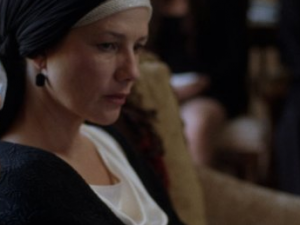 Elana (Daphne Zuniga) endures breast cancer
Elana (Daphne Zuniga) endures breast cancer
About the time of developing these characters and themes, my London-based sister was diagnosed with breast cancer. Later my older sister was also discovered with breast cancer. I made Shahrzad’s piano teacher Elana to also be afflicted with breast cancer. Elana and Shahrzad discover that in addition to their common passion for Tchaikovsky’s music, they both suffer from serious breast problems. By sharing their secret breast tragedies, Shahrzad and Elana bond and become best friends… while both in love with Sebastian.
Qismat (Ghismet) = Destiny. Love Triangle
Qismat or Destiny is part of the Iranian and the Middle East’s culture and the daily life.
Shahrzad flees Iran and marries an Iranian American stand-up comedian in Los Angeles in a kind of arranged marriage- a “marriage of convenience” as Sebastian tells Shahrzad. To escape to freedom, many girls hopelessly stuck under oppressive regimes, some even suffering, or threatened with, violent abuse, marry men of their own ethnicity who are already successful and established in the free West.
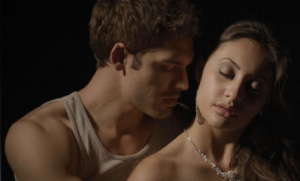 Sebastian (Ryan Guzman) + Shahrzad (Francia Raisa)
Sebastian (Ryan Guzman) + Shahrzad (Francia Raisa)
By creating the Shahrzad character to be a classical music student, it gave the idea to create Elana. Elana becomes Shahrzad’s piano teacher. Since Shahrzad is Muslim, making Elana to be Jewish made the student and teacher relationship a bit more interesting.
Young Sebastian is Elana’s handsome and poetic gardener. He’s also her secret beau. But it’s Coup de Foudre, Love at First Sight, when Sebastian by accident (Destiny) first sees Shahrzad. Later by the ocean waves, Shahrzad weeps over a Farsi word she had written in the sand: ‘Qismat.’
A complex love triangle ensues between Shahrzad, Sean her husband, and Sebastian, with Elana caught in the middle. Alluding to their complex situation, Shahrzad in a tender scene says to Sebastian: “Our Qismet is not be… Maybe it’s my fate…”
Classical Music
Shahrzad, Elana and Sebastian’s passion for music and poetry led to the natural use of both Iranian and Western classical music on the movie’s soundtrack.
Rimsky-Korsakov’s Sheherazade tender music opens the movie. This sweet music is replayed over the graphically violent beating of Shahrzad and Zara during the Tehran flashbacks, which may remind of Stanley Kubrick’s use of Beethoven’s Symphony No. 5 wonderful music on the soundtrack of A Clockwork Orange as a counterpoint to the violent gang rape scene.
Similarly, Korsakov’s Sheherazade music is repeated on Beyond Paradise’s soundtrack to contrast the beauty and poetry of life against the ugliness and absurdity of violence.
Shahrzad’s teacher Elana, the classical pianist, gave the chance to feature a few phrases from the classical music of Tchaikovsky, Bach, Mozart and Beethoven. For our cross-cultural love story, this parallels the use of classical Persian music played on ancient instruments of Iran: Setar, Ney, Robab, Santoor, Daf and Tonbak (some of which are about 4000 years old.)
Samples of music cues used are on the movie site at Music Soundtrack.
Equality Now

How is it that women who centures ago had such important roles in literature and society and were the objects and muses of high admiration, passionate poems, wonderful painging and splendid music, but now they are the objects of fear, abuse, oppression, beatings, acid attacks, even being stoned to death? Why in the 21st C. are women still not allowed the same freedom as men? As Shahrzad says: “(Back home) I was not even allowed to sing in public.”
Roses, Birds and Kites
Throughout the movie, we see roses, birds and kites. In the opening 30-sec teaser montage, the head-scarfed teenager Shahrzad walks to her Tehran home, holding a cage with a green bird inside.
Chased by the baton-waving militia, Shahrzad’s terrified school friend runs by and throws her a red rose, Then something terrible happens to Shahrzad and her bird in the cage, lying still by the rose on the sidewalk.
When Shahrzad’s plane lands in Los Angeles, unbeknown to Shahrzad, her destined future lover Sebastian is flying an orange kite in the sky above Malibu cliffs, to which Shahrzad is driven- to the home of her “arranged” husband.
Shahrzad reads Rumi’s poems from a book using a dried rose petal as a page marker. One of Sebastian’s bird kites, a magnificent bird-shaped kite with colorful wings, falls in Shahrzad’s paradisiacal rose garden, giving Sebastian the first chance to speak to Shahrzad.

Shahrzad brings a red rose as a gift when she first meets her piano teacher. Later, holding a red rose, Sebastian surprises Shahrzad by whispering a Rumi poem to her: “You are the rose, I’m the thorn. Don’t show your beauty without me.”
Sebastian invites Shahrzad so they secretly fly a green kite on the beach, causing them to touch and hold each other, albeit tentatively.
In Malibu, her husband brings her a covered gift. When she lifts the cloth, she sees two red love birds in a cage. Later, when Shahrzad believes Sebastian has abandoned her, she sings a poignant Rumi song (“Ruler of My Heart”) by the birds in the cage next to her piano.
Then, by accident one of the birds flies away. Pensively, she frees the remaining lonely bird, hoping she will find her lover.

Before Shahrzad attempts to drown herself in the ocean, she sadly showers down rose petals on Rumi and Lorca’s poem books lying sided by side on the sand.
Roses, birds and kites are used as beautiful, delicate, and ephemeral symbols of love, liberty and innocence. They are vulnerable beauties, subject to the forces of nature or the whims of Qismet = Destiny.
In the end, when Shahrzad decides to jump off the high cliff to certain death, to join her fallen lover, we see two birds fly majestically over the ocean, one following the other, as if the birds embody the hearts and souls of the lovers Shahrzad and Sebastian.
The flying birds hint at a Romeo & Juliet dream ending: “True love survives even death.”
The Ocean
The ocean is a constant metaphor from the start of the story to the end. The lovers’ rendez-vous are often on the beach. Their poignant and poignant romance scenes occur by the sea; as is their final tragic scene. The visuals of the ocean echo Life and the lovers’ ideal of Love: beautiful, deep, turbulent, vast, ceaseless ocean. The final scene of the script reads:
“Camera flies, chasing the gun down the cliff. It sweeps over the rocks, searching for Shahrzad and Sebastian’s bodies. Nothing is seen or heard except the sound of the wind and the sight of the ocean endlessly returning to embrace the shore over and over, as if nothing happened…”
This movie’s U.S. version ends with an additional ending: a dream-like lovers’ embrace that fades to pure white- a divine wish that perhaps ‘true love survives even death’; thus book-ending with the opening ‘Sheherazade’ quote of the movie: “When nothing existed, love existed; and when nothing shall remain, love shall remain; it is the first and the last.”
In the same spirit, Rumi’s spiritual poem “Cycle of Life” is divinely sang by the actress/singer Fereshteh Dehghani at the final end of the film. In his spiritual manner, Rumi poetically reflects the Buddhist philosophy of the Cycle of Life and Death that is remarkably different from both the Biblical and Quranic interpretations of Life.
I died as a mineral, I grew as a plant
I died as a plant, I arose as an animal
I died as an animal, I returned as a human
Why should I fear? When was I less by dying?

When I die as a human, I shall fly with the angels
When I leave my angel-soul, I soar higher
I shall reach the ecstasy of the Divine
All shall perish, except the Divine.
– Rumi, 13th C. Persian poet, philosopher, mystic
*****
Notes:
Persian Hazar Afsan or Hazar O Yak Shab, that’s ‘Sheherazade’s 1001 Nights’ was enhanced and expanded further during the golden age of Middle Eastern arts and literature. It’s translated into every language correctly with the original, mysterious and evocative title of ‘One Thousand and One Nights‘, including into Arabic Alf Layla wa Layla and French Les Mille et Une Nuits ## see reference at bottom..
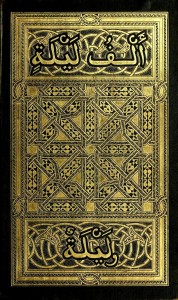 One Thousand and One Nights book cover in Arabic
One Thousand and One Nights book cover in Arabic
Except for the British Sir Richard Burton who changed the marvelous and poetic One Thousand and One Nights to the banal and commercial title of ‘Arabian Nights Entertainment‘ (later shortened to ‘Arabian Nights‘) accentuating the sexuality of the stories, evidently to titillate and attract book readers in the repressed Britain under the reign of Queen Victoria.
The 1001 Nights influenced almost every writer of fame from Boccaccio (Decameron) to Cervantes, Voltaire, Proust, Stendhal, Dumas, Jules Vernes, Goethe, Hans Christian Anderson, Pushkin, Tolstoy, Wordsworth, H.G. Wells, Poe, Angela Carter… and Borges.
Some 20 years of research led to a brilliant book “The Arabian Nights- A Companion” by the British scholar Dr. Robert Irwin. He calls the last chapter ‘Children Of The Nights’ devoting over 60 pages to discuss the famous writers influenced by The 1001 Nights. Irwin concludes: “Indeed, it might have been an easier, shorter chapter if I had discussed those writers who were not influenced by The Nights.” << see reference at bottom.
In America, sadly the wonderful, fantastic, adventurous, witty, sensual, multi-layered, moral and diverse stories of The 1001 Nights, “the best story ever told”, is largely known only for a few of its tales, turned into simplistic and popular animation movies, such as Ali Baba, Sinbad and Disney’s Aladdin.
——————–
** Schéhérazade ou l’éducation d’un roi par Marie Lahy-Hollebecque, Paris, 1987.
<< The Arabian Nights – A Companion by Robert Irwin, London, 1994.
>> Zadig ou la Destinée ,“Zadig, or The Book of Destiny” par Voltaire, Paris, 1747.
## Les Mille et Une Nuits, par Antoine Galland, Paris, 1704 – 1707
*****

